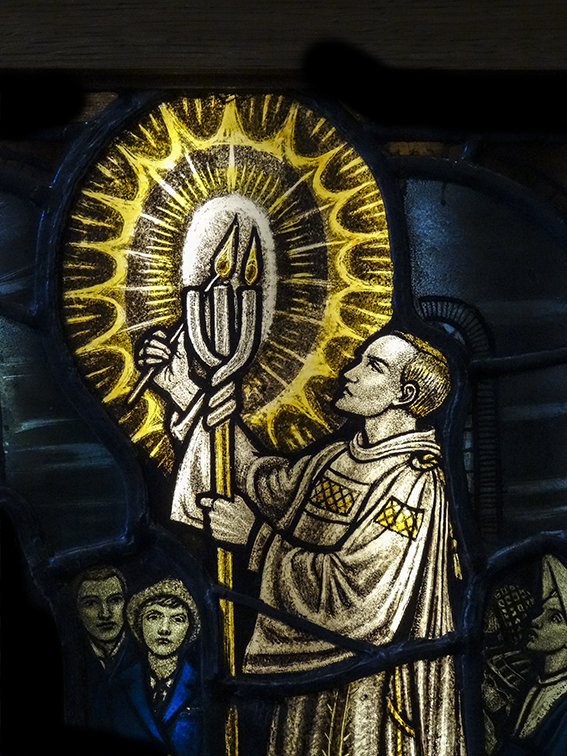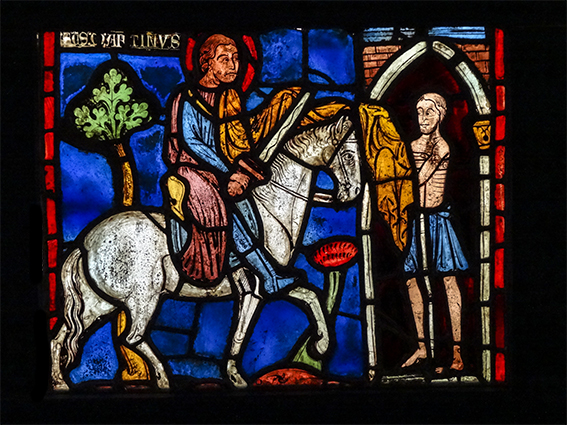
Every high priest has been taken out of mankind and is appointed to act for men in their relations with God, to offer gifts and sacrifices for sins; and so he can sympathise with those who are ignorant or uncertain because he too lives in the limitations of weakness. That is why he has to make sin offerings for himself as well as for the people. No one takes this honour on himself, but each one is called by God, as Aaron was. Nor did Christ give himself the glory of becoming high priest, but he had it from the one who said to him: You are my son, today I have become your father, and in another text: You are a priest of the order of Melchizedek, and for ever.
Second reading for the 30th Sunday in Ordinary Time
Hebrews 5:1-6
Hebrews speaks of Jewish priesthood.
In Jesus Christ the limits and limitations of the Jewish cult are revealed by the Paschal Mystery of his Passion, Death and Resurrection. That Paschal Mystery opens to all humankind – Jews, pagans and all – a new order in which we can live.
Catholic and Orthodox Christians see ministerial priesthood, priesthood of the Christian cult, as an essential part of that new order. It is gifted to the Church to help sustain our engagement with the saving love of God. And it does this in a variety of ways, especially through the ministry of the word of God and the celebration of the sacraments.
Christian priests, like those of Judaism, minister within ‘the limitations of weakness’: and sometimes this is grossly evident.
Such priests have their (integral) place in the life of the Church, but our faith is not in them rather it is in the priesthood of Christ, our Saviour and Lord – that, at their best, his priests strive faithfully to minister.
3rd C carving of sacrificial scene. (Musee d’Aquitane, Bordeaux) (c) 2018, Allen Morris


 The Lord says this:
The Lord says this:



 James and John, the sons of Zebedee, approached Jesus. ‘Master,’ they said to him ‘we want you to do us a favour.’ He said to them, ‘What is it you want me to do for you?’ They said to him, ‘Allow us to sit one at your right hand and the other at your left in your glory.’ ‘You do not know what you are asking’ Jesus said to them. ‘Can you drink the cup that I must drink, or be baptised with the baptism with which I must be baptised?’ They replied, ‘We can.’ Jesus said to them, ‘The cup that I must drink you shall drink, and with the baptism with which I must be baptised you shall be baptised, but as for seats at my right hand or my left, these are not mine to grant; they belong to those to whom they have been allotted.’
James and John, the sons of Zebedee, approached Jesus. ‘Master,’ they said to him ‘we want you to do us a favour.’ He said to them, ‘What is it you want me to do for you?’ They said to him, ‘Allow us to sit one at your right hand and the other at your left in your glory.’ ‘You do not know what you are asking’ Jesus said to them. ‘Can you drink the cup that I must drink, or be baptised with the baptism with which I must be baptised?’ They replied, ‘We can.’ Jesus said to them, ‘The cup that I must drink you shall drink, and with the baptism with which I must be baptised you shall be baptised, but as for seats at my right hand or my left, these are not mine to grant; they belong to those to whom they have been allotted.’
